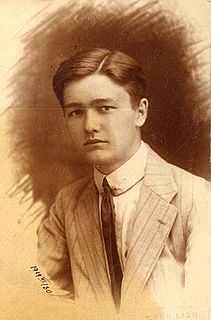 W
WTibor Déry was a Hungarian writer and poet. He also wrote under the names Tibor Dániel and Pál Verdes.
 W
WValéria Dienes was a Hungarian philosopher, dancer, dance instructor, choreographer and one of first Hungarian woman to graduate from university. She is widely considered to be one of the most important Hungarian theorists on movement. She was the recipient of Hungary's highest literary award, the Baumgarten Prize in 1934.
 W
WGyula Illyés was a Hungarian poet and novelist. He was one of the so-called népi writers, named so because they aimed to show – propelled by strong sociological interest and left-wing convictions – the disadvantageous conditions of their native land.
 W
WAttila József is one of the most famous Hungarian poets of the 20th century. Generally not recognized during his lifetime, József was hailed during the communist era of the 1950s as Hungary's great "proletarian poet" and he has become the best known of the modern Hungarian poets internationally.
 W
WGyula Juhász was a Hungarian poet, who was awarded the Baumgarten Prize.
 W
WÁgnes Nemes Nagy was a Hungarian poet, writer, educator, and translator.
 W
WLászló Németh was a Hungarian dentist, writer, dramatist and essayist. He was born in Nagybánya the son of József Németh (1873–1946) and Vilma Gaál (1879–1957). Over the Christmas of 1925, he married Ella Démusz (1905–1989), the daughter of János Démusz, a keeper of a public house. Between 1926 and 1944 they had six daughters, but two of them died in infancy. In 1959 he visited the Soviet Union. In the last part of his life he lived and worked in Tihany. He died from a stroke on 3 March 1975 in Budapest and was buried in Farkasréti Cemetery, Budapest, where he shares a grave with his wife.
 W
WJános Pilinszky was one of the greatest Hungarian poets of the 20th century.
 W
WMiklós Radnóti was a Hungarian poet and teacher.
 W
WLőrinc Szabó de Gáborján was a Hungarian poet and literary translator.
 W
WMiklós Szentkuthy (1908–1988), born Miklós Pfisterer, was one of the most prolific Hungarian writers of the 20th century. He was born in Budapest on June 2, 1908 and died in the same city on July 18, 1988. Szentkuthy's works include numerous novels, essays, translations, and a voluminous diary spanning the years 1930–1988. As the author of masterpieces such as Prae, the epic 10-volume St. Orpheus’ Breviary, A Chapter on Love and Towards the One and Only Metaphor, he is recognized as one of the most significant Hungarian writers of the 20th century. To date, his works have been translated into English, French, Spanish, Portuguese, Romanian, Slovak, and Turkish.
 W
WAntal Szerb was a noted Hungarian scholar and writer. He is generally considered to be one of the major Hungarian writers of the 20th century.
 W
WÁron Tamási was a Hungarian writer. He became well known in his native region of Transylvania and in Hungary for his stories written in his original Székely style.
 W
WCount Albert Wass de Szentegyed et Czege was a Hungarian nobleman, forest engineer, novelist, poet and member of the Wass de Czege family.
 W
WSándor Weöres was a Hungarian poet and author.